Study Associations on the Energy Challenge
We accelerate the energy transition for a better society. Ongoing research, collaborations, new initiatives and labs, and the training of engineers for a sustainable world, we do it all to accelerate the energy transition. It is a complex issue and a great challenge, but that is all the more reason to do everything we can. The ultimate goal: a clean, affordable, safe and reliable energy system.
The university has many scientists doing research, but is that all we can contribute? The faculties and student associations are also joining the mission. To find out what they do exactly, we spoke to René Voorwalt from LIFE, Jip Kuiper from Practische Studie and Frederieke Backelandt from Technologisch Gezelschap. These are respectively the study associations of Life Science and Technology, Civil Engineering and Molecular Science and Technology. We asked them the following questions:
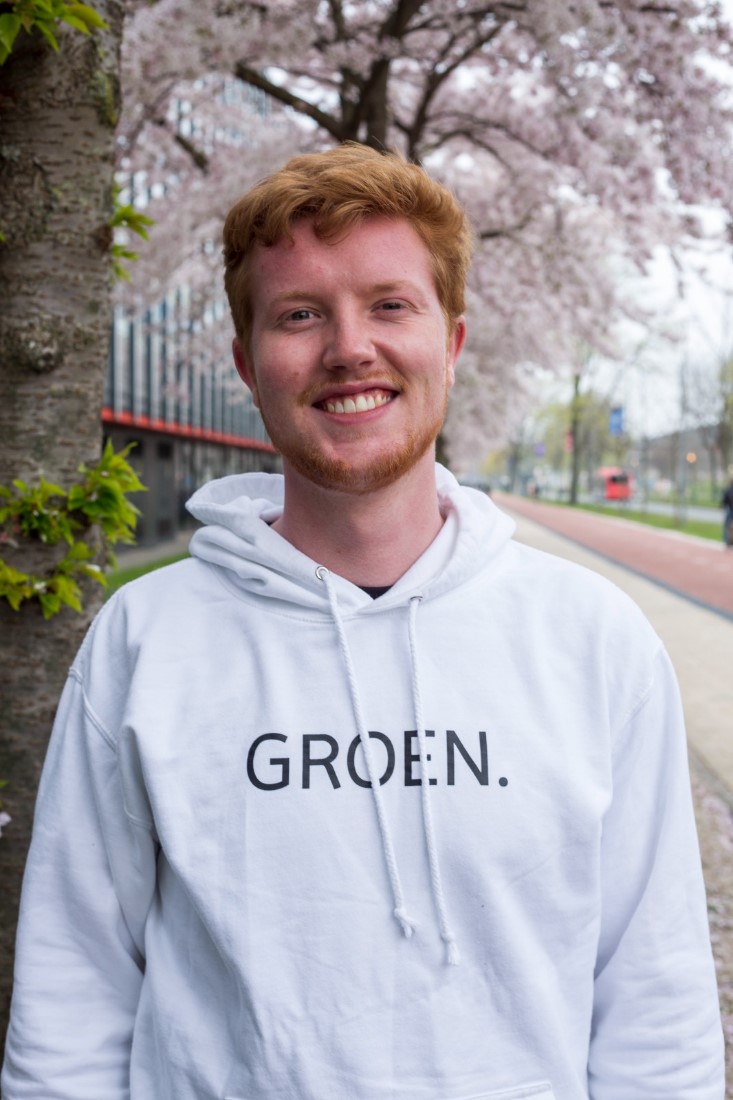
Jip
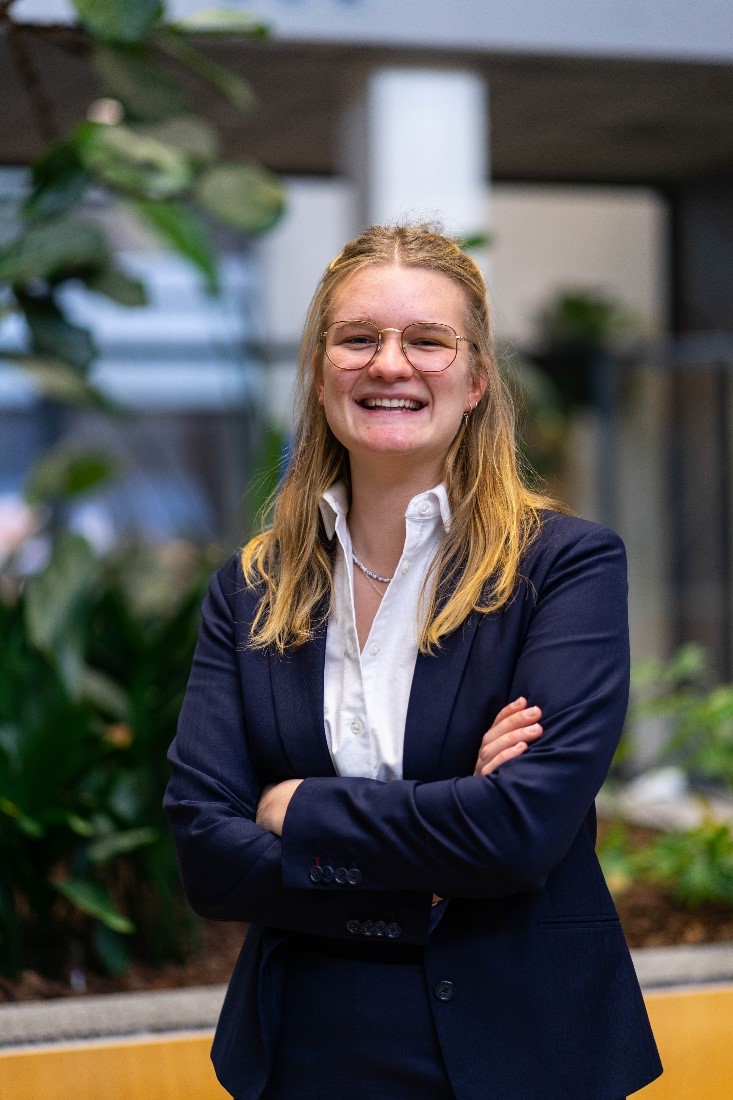
Frederieke
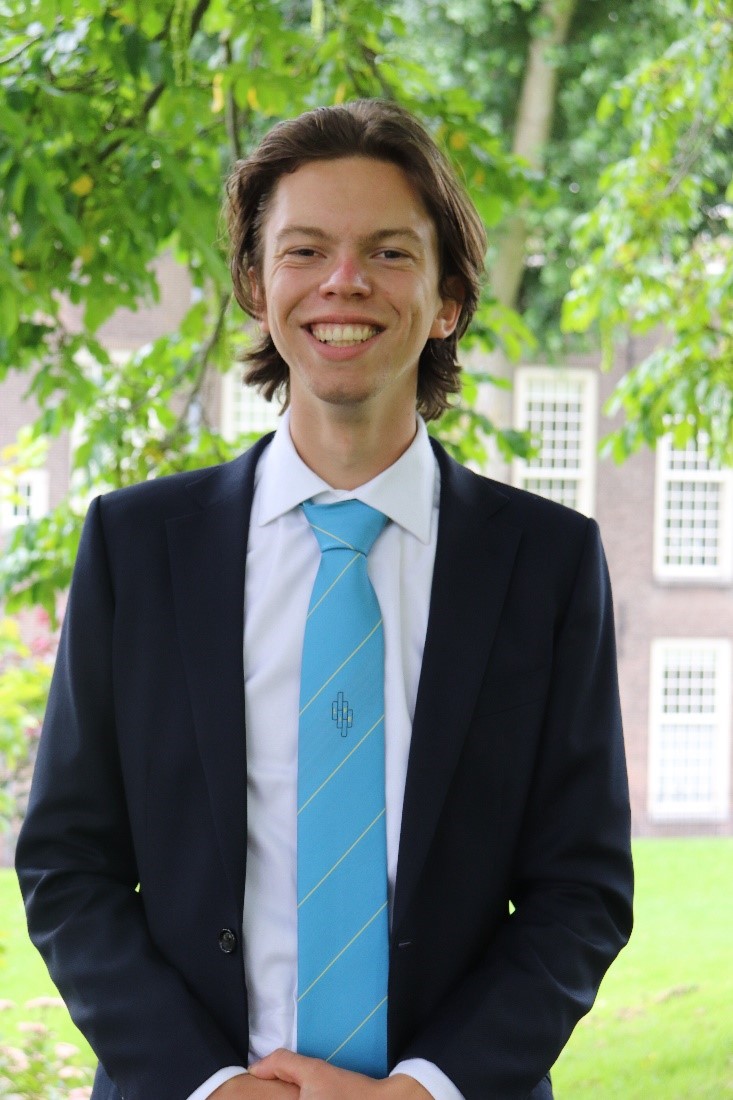
René
How do you see the energy transition being implemented in your teaching today?
René: Within LST, there are several courses that can be applied to the energy transition, for example, our students learn how catalysts can be performed more sustainably in the course 'Organic Chemistry'. The students learn how to make biofuel from sunflower oil. They also learn that enzymes are a sustainable alternative to the old-fashioned, non-biological catalysts in a range of our subjects. These more sustainable enzymes can then be used in the production of biofuel. Finally, in the subject 'Biotechnology', they learn how to produce bioethanol and other biofuels from residual flows such as the stems of corn plants.
Jip: A number of courses in our bachelor’s devote attention to climate, energy and sustainability, for example, Construction Materials and Sustainability and the elective course Climate Impacts and Engineering in the first and third year of the bachelor’s. The master's in Hydraulic Offshore Structures Engineering also pays a lot of attention to this, with students learning how to design wind farms at sea and how to design the support structure of a wind turbine at sea. The master's in Environmental Engineering, which will start in the coming academic year, will also pay a lot of attention to this subject. In Civil Engineering, building materials are extremely important. Since materials such as concrete are huge polluters, themes such as circular construction, reuse of materials, use of sustainable raw materials and creating projects with a long life span are essential. These are dealt with extensively in various subjects within the curriculum.
Frederieke: In recent years, we have noticed that within the subjects of the bachelor's programme, more and more attention is being paid to the energy transition. Sustainability is an important part of the whole. We have a separate subject for this called Energy, Recycling and Safety. Research groups are very busy with this and therefore a large part of the graduation assignments is focused on this theme. In addition, a new curriculum for our master's in Chemical Engineering will start next year, in which students can choose the tracks Energy and Circularity.
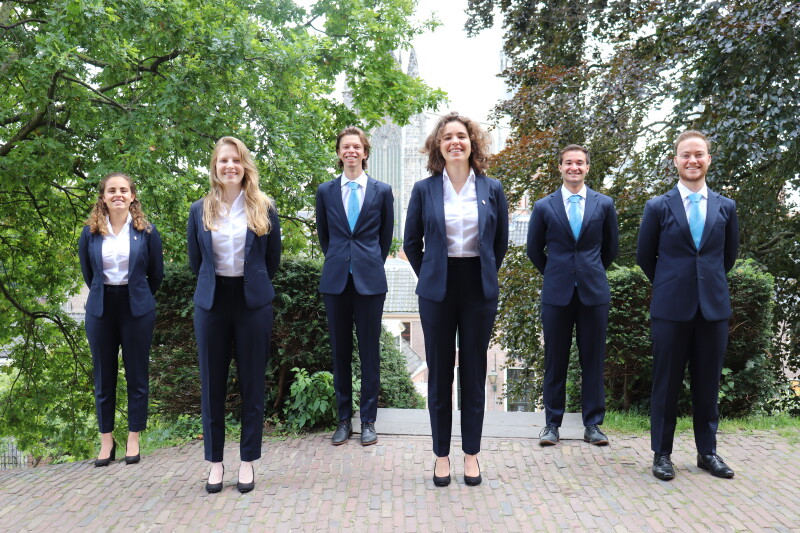
Board 25 of S.V. LIFE
How will the energy transition affect your field?
René: Life Science & Technology is also called the study of the future. Our field will be enormously important for the production of biofuels and the beneficial use of waste streams by upgrading them to high-quality end products. In recent years, the use of microorganisms has been growing exponentially within biotechnology. Through this route, fossil fuels will no longer be needed. Plant sources will be the ones to take over.
Jip: In order to have less potentially harmful produced material in circulation, we must carefully consider the possibilities of reusing raw materials and waste. In addition, the sector can contribute to projects that promote the production of green energy, such as the construction of wind farms or the efficient use of the flow in rivers.
Frederieke: We believe that Chemical Engineers can make a major contribution to the energy transition. After all, the possibilities of using the energy in chemical bonds are enormous. We notice that many large chemical companies are starting to make the transition and are conducting research into this. Major steps still need to be taken, but compared to the past, we are seeing a growth in awareness of the energy transition.
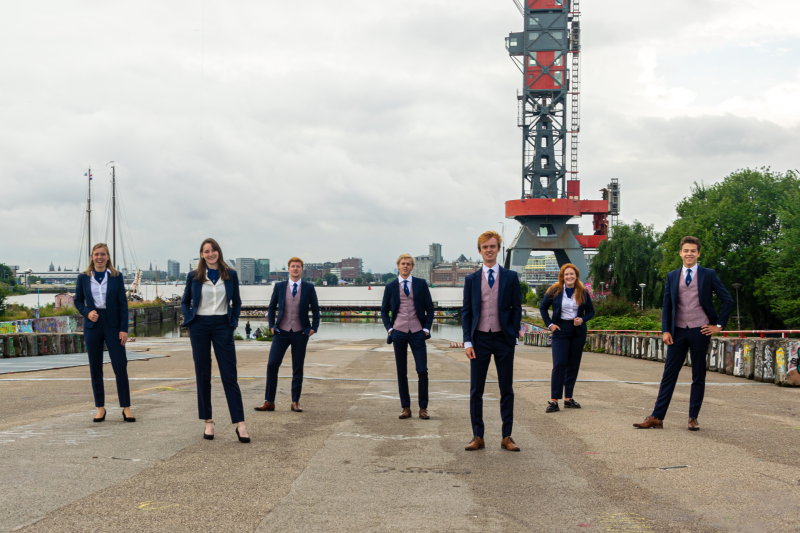
Board 128 of Het Gezelschap "Practische Studie"
What is your faculty currently doing in the field of energy transition and what could be improved?
René: The faculty has a GreenTeam that is working hard to make the faculty more sustainable. We are also organising a sustainability week together with study associations on the faculties, during which sustainability and the energy transition at various levels are addressed. The ultimate goal for the university is a CO2-neutral and circular campus in 2030.
Jip: A renovation to make the building more sustainable is currently planned on the first floor of the Faculty of Civil Engineering and Geosciences. In addition, the energy transition can be seen a lot in education, especially in the masters. Here, students learn to think about solutions for future shortages of raw materials, they learn more about the subsurface and can thus recognise where we can start working with geothermal energy, the safe storage of CO2. Another important part is the construction of the infrastructure around the TU Delft to make the campus more sustainable. At last, also solar panels have been installed on top of the faculty building!
Frederieke: The new Applied Sciences faculty building has a thermal storage system that provides sustainable heating and cooling for the entire building. There is also a GreenTeam that has been working on implementing the sustainability theme into education over the past year. For example, an introductory practical included an experiment with solar cells, and in another subject, the storage of wind energy was discussed. We are therefore not specifically focused on the energy transition, but on sustainability in general.
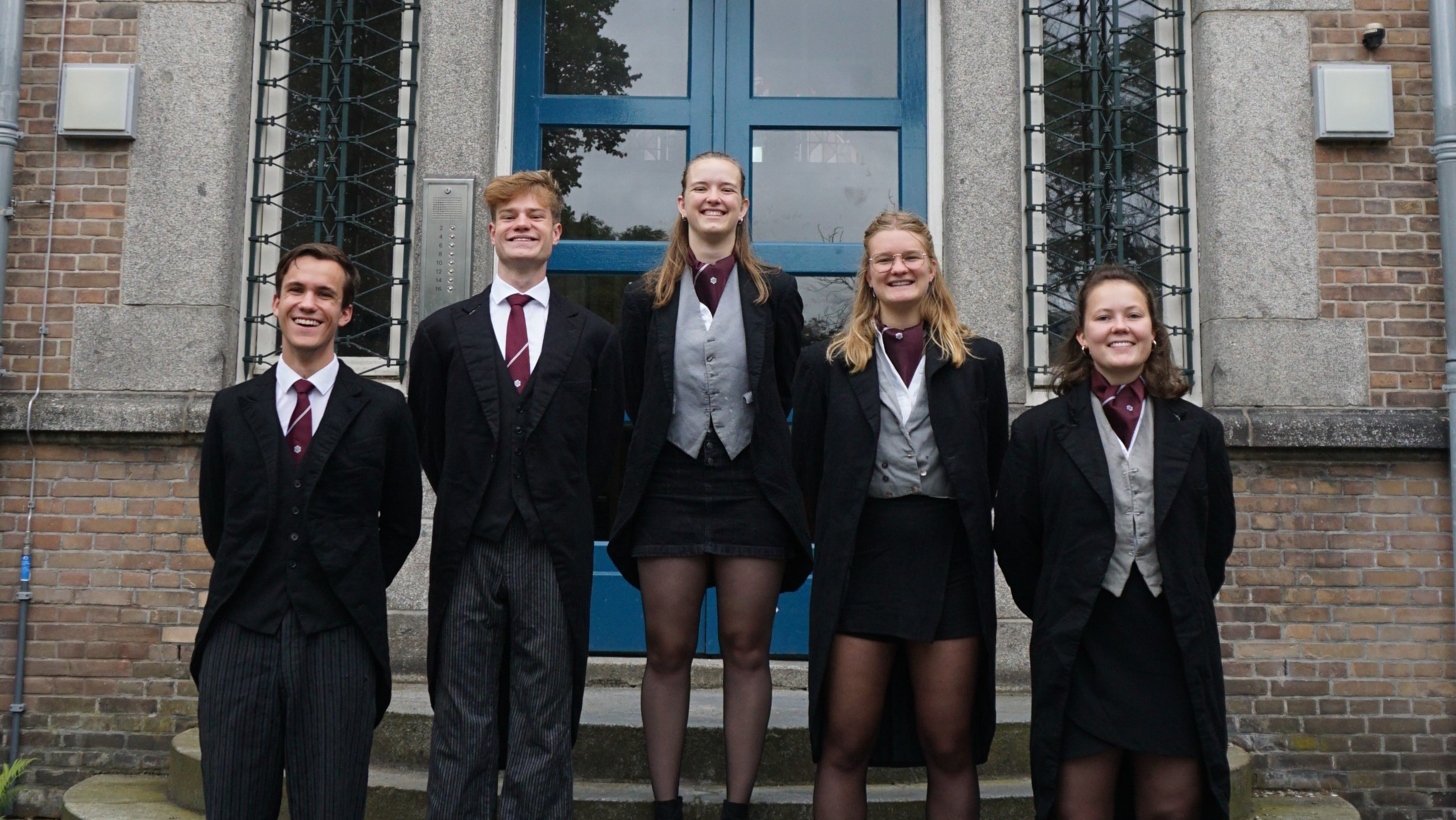
Board 128 of Technologisch Gezelschap
The study associations are close to the students and are therefore a strong link in enhancing TU Delft's strength. The goal is to accelerate the energy transition, and to achieve this we need to involve the students. Not only to accelerate now, but also because students must ensure that we can deal with a sustainable future later on. We have asked the student associations for their contributions.
What do you do as a study association specifically in the field of the energy transition?
René: Within the study association we are committed to making the association more sustainable on all fronts, an example is that we are working on obtaining a TU Delft sustainability label. As a study association, we are located in both Delft and Leiden and we try to use the car as little as possible when commuting between these cities and encourage students to travel by train.
Jip: We are making every effort to obtain a sustainability label this year, awarded by GreenTU. This label is awarded to sustainable organisations. Furthermore, we at Practische Studie think about more sustainable activities and a greener location, for example, we held a sustainability brainstorm last January and several lunch lectures about the theme. We also regularly visit companies where these topics are discussed increasingly often. The energy transition certainly plays a role in all of this!
Frederieke: The energy transition is of course part of the whole concept of sustainability. As a study association, we try to raise awareness among our students, especially in the field of sustainability in general. We do this by making dinners vegetarian and by organising a green week. In this we let students get in touch with sustainability in a fun way. During this week, we organise a clothing exchange, a vegan cooking workshop and a symposium entitled 'Ambition for Energy Transition'.
